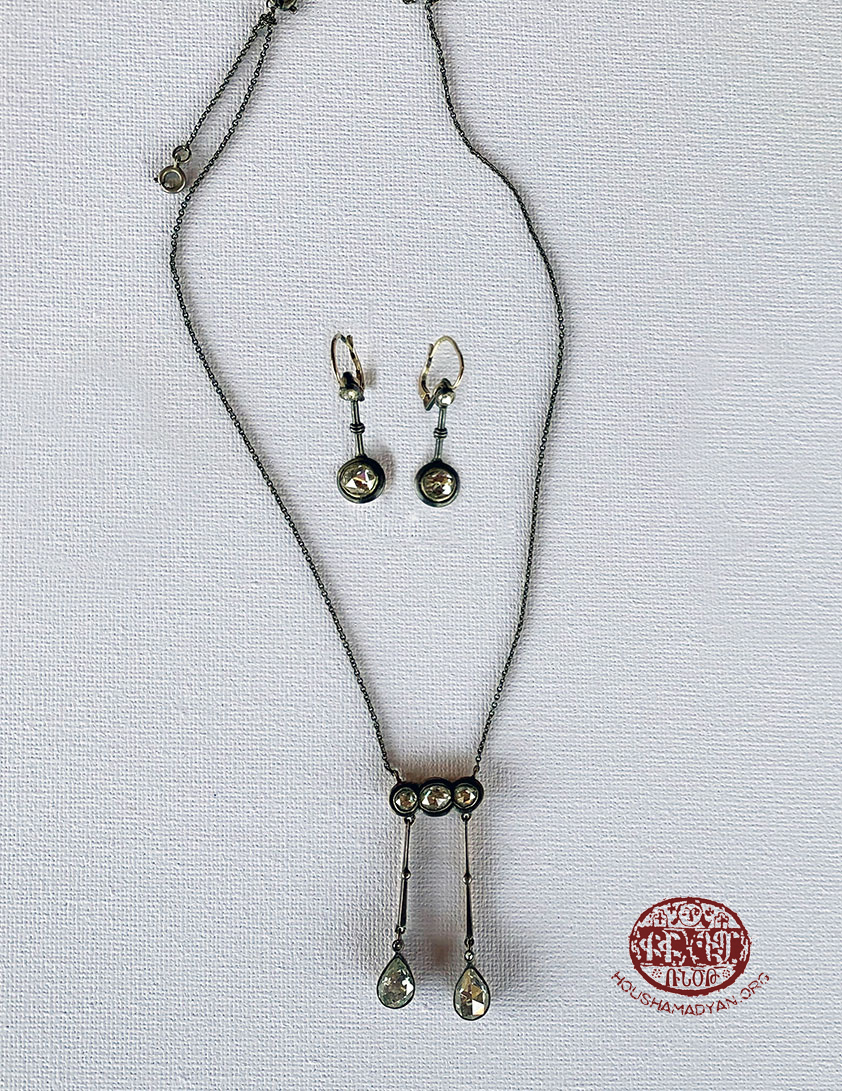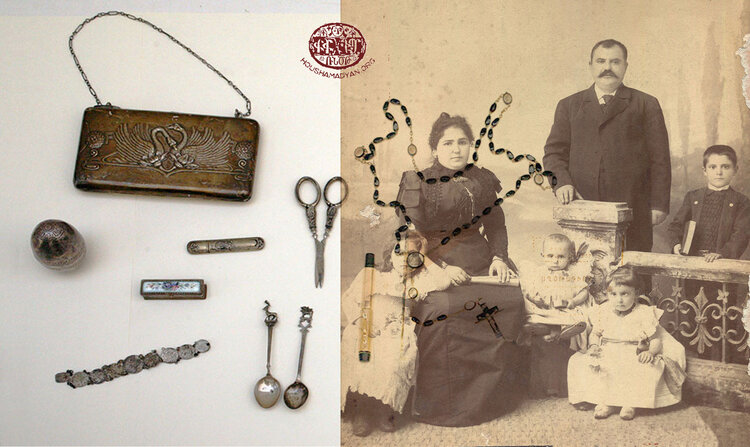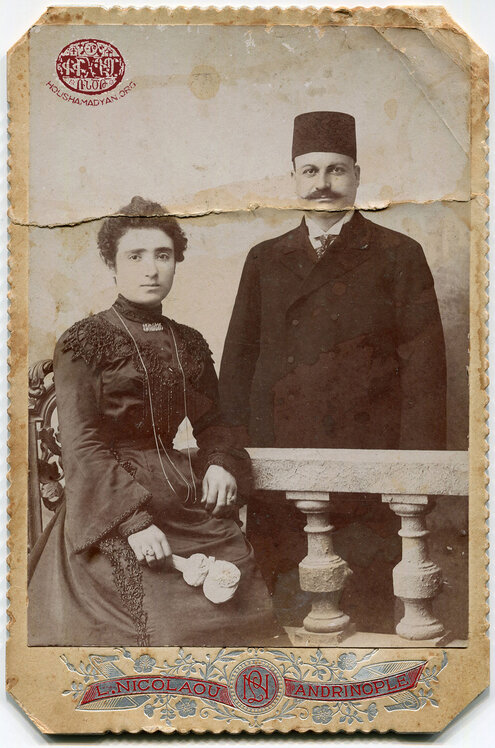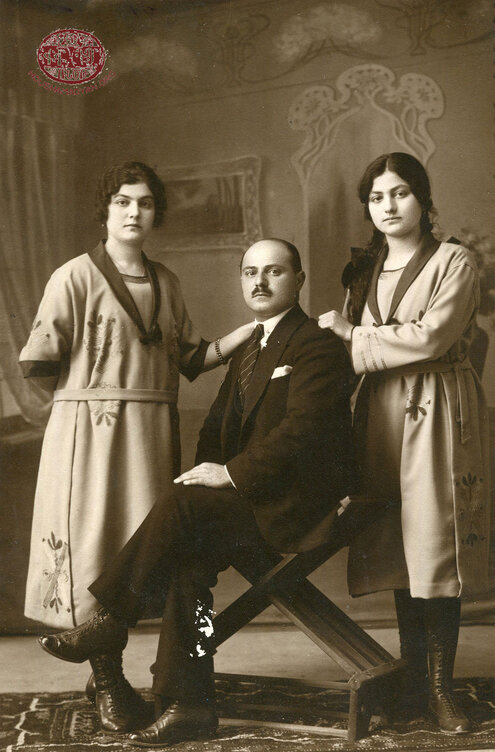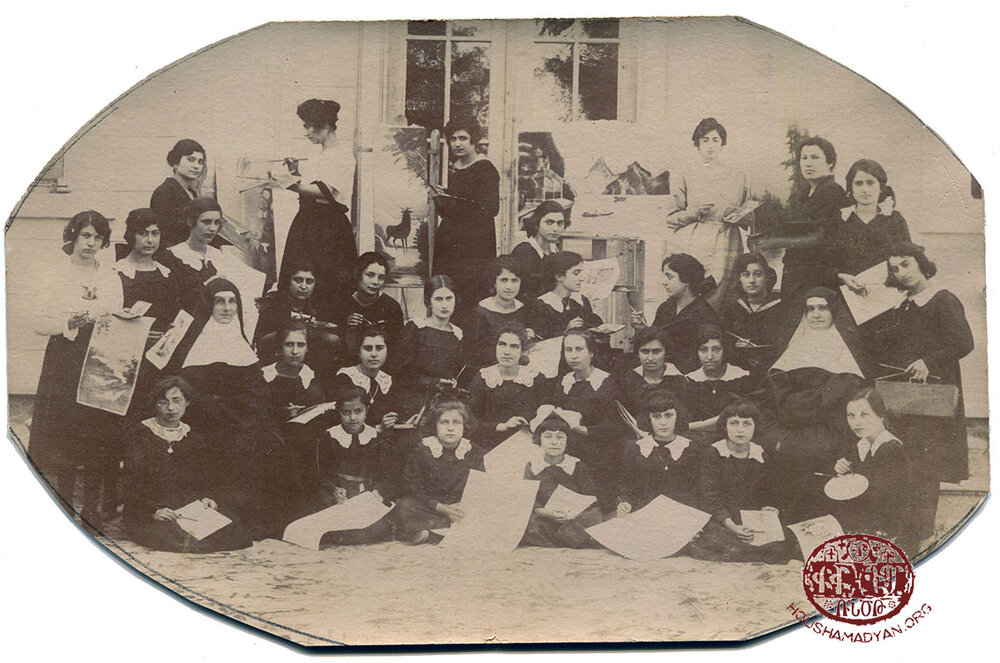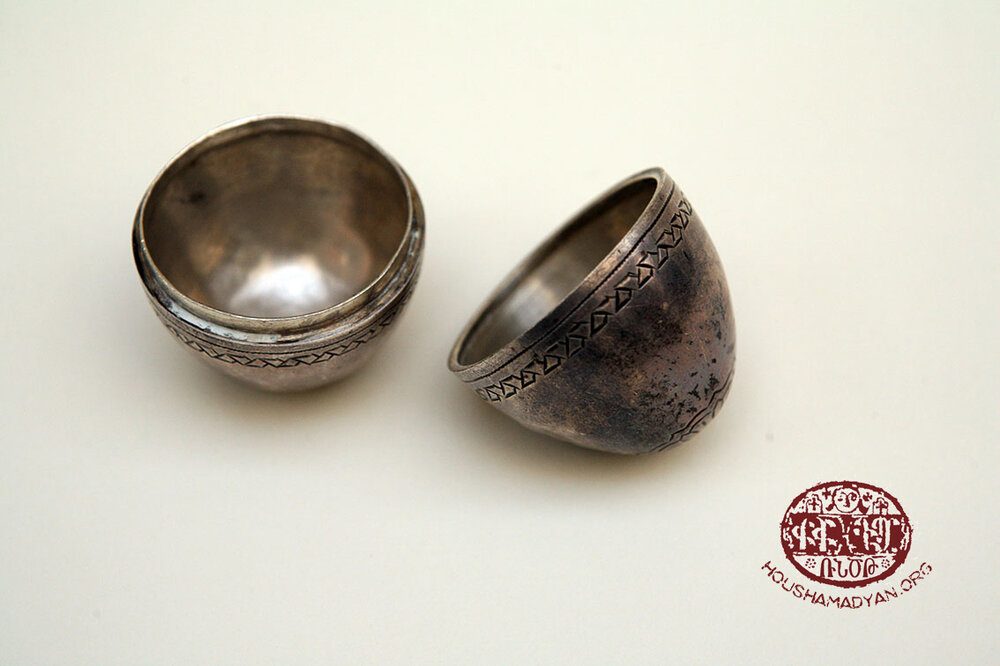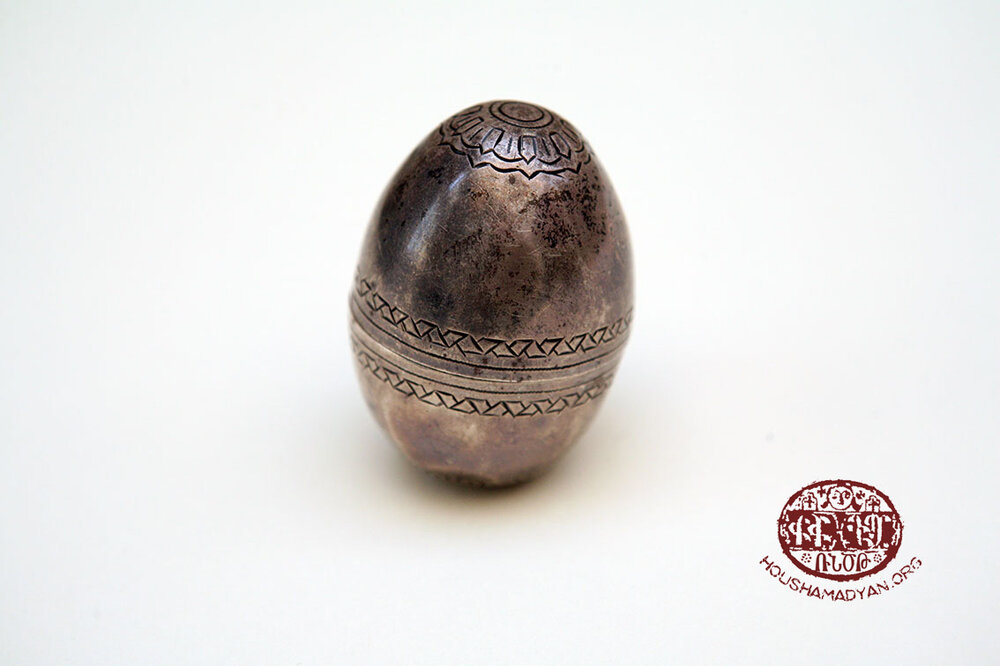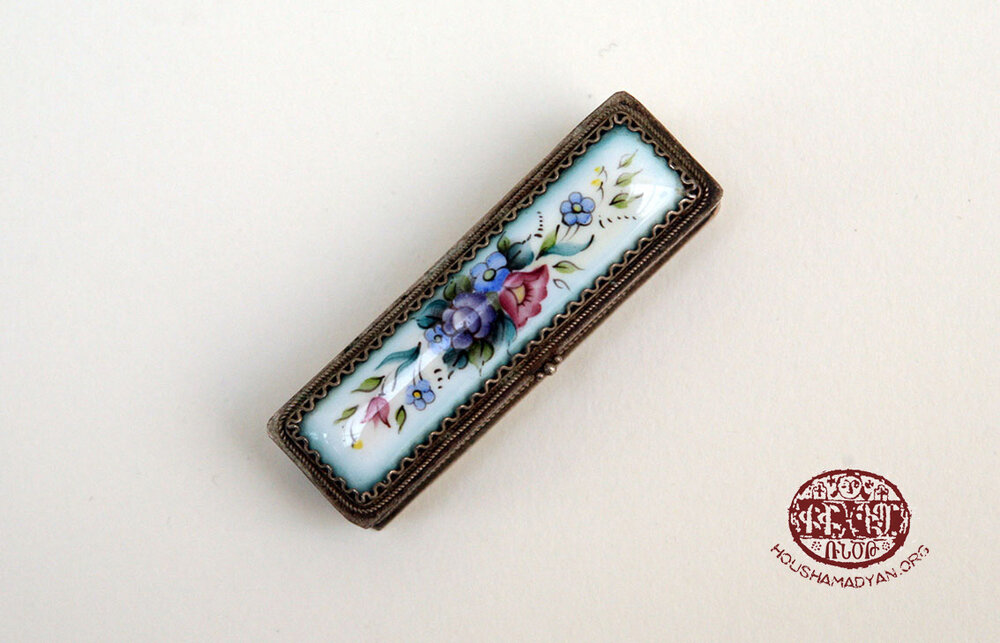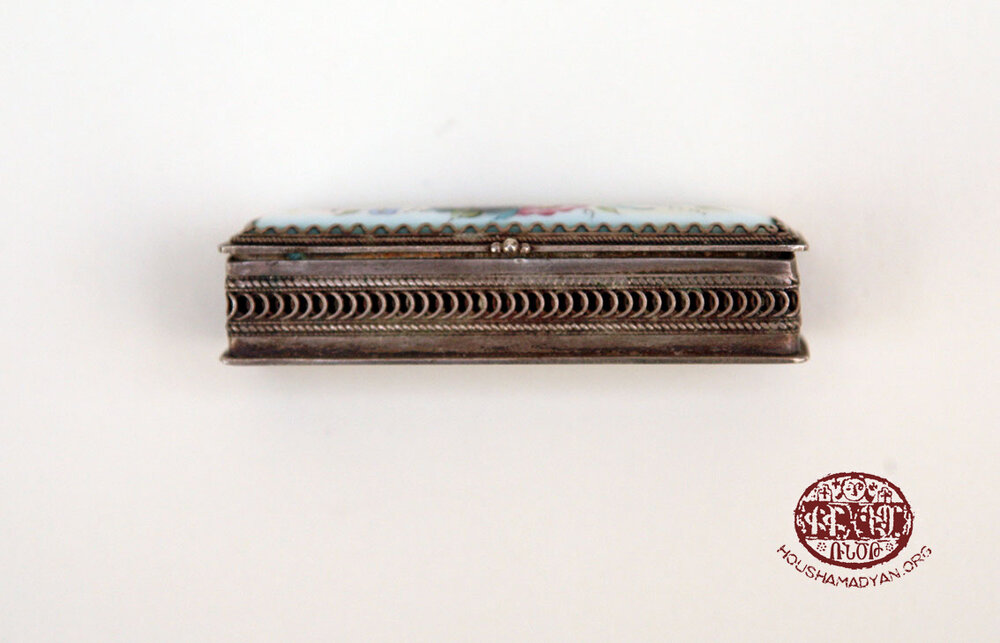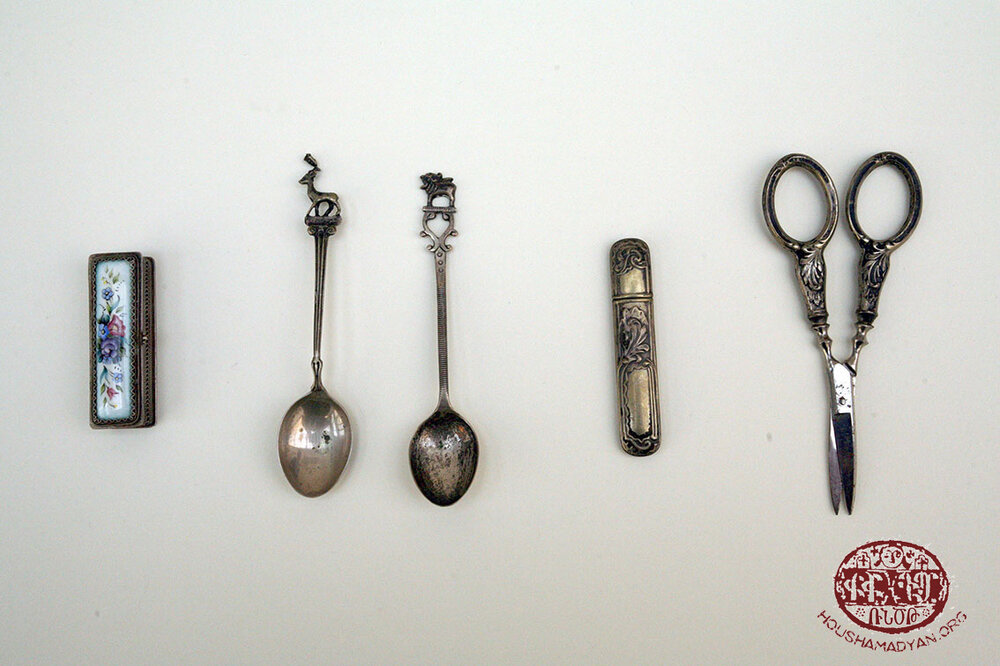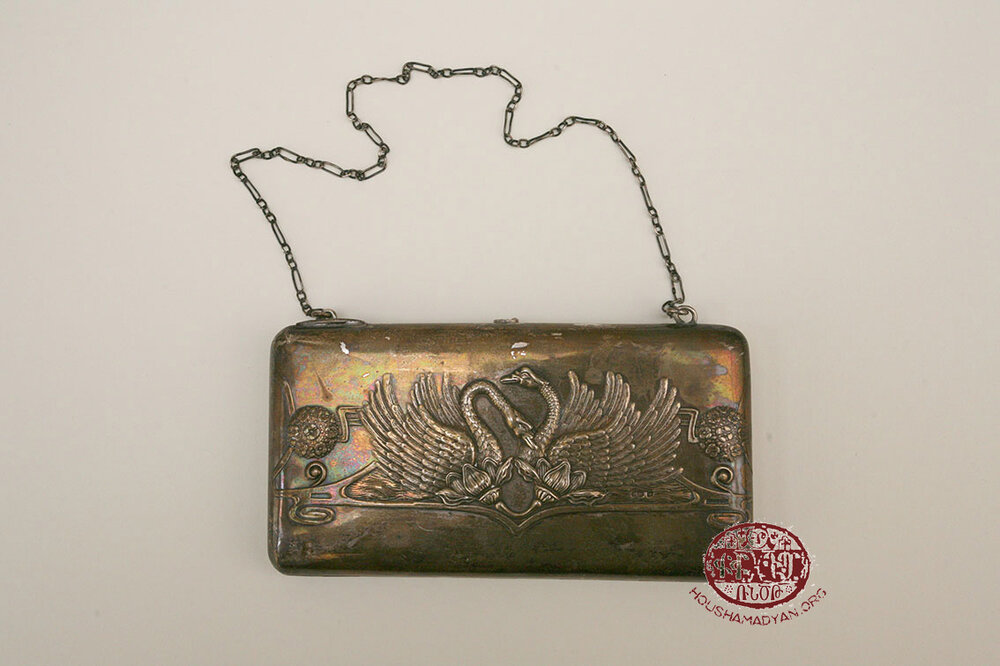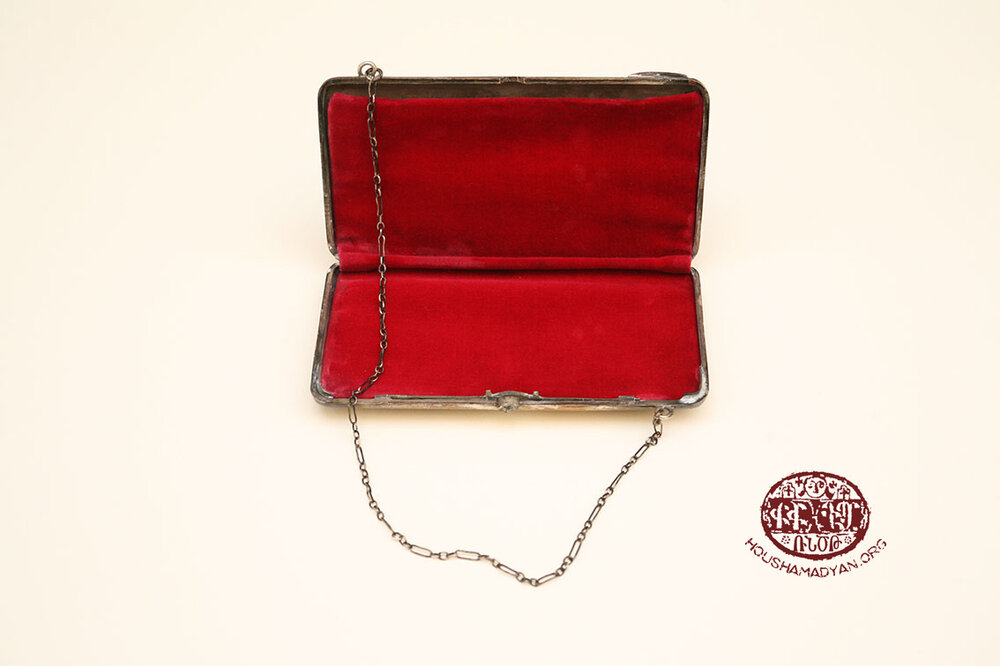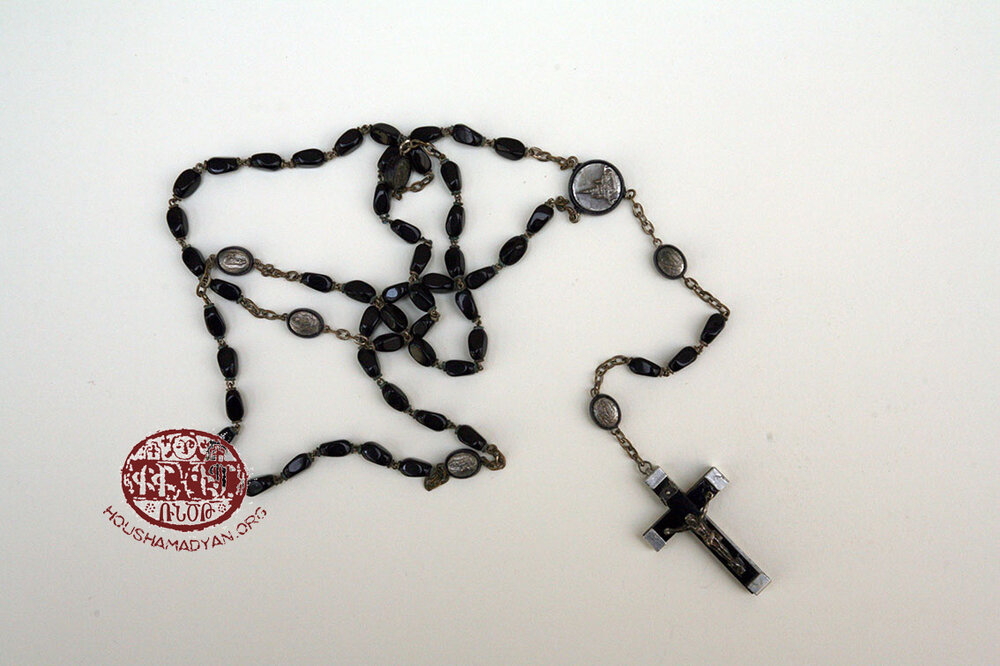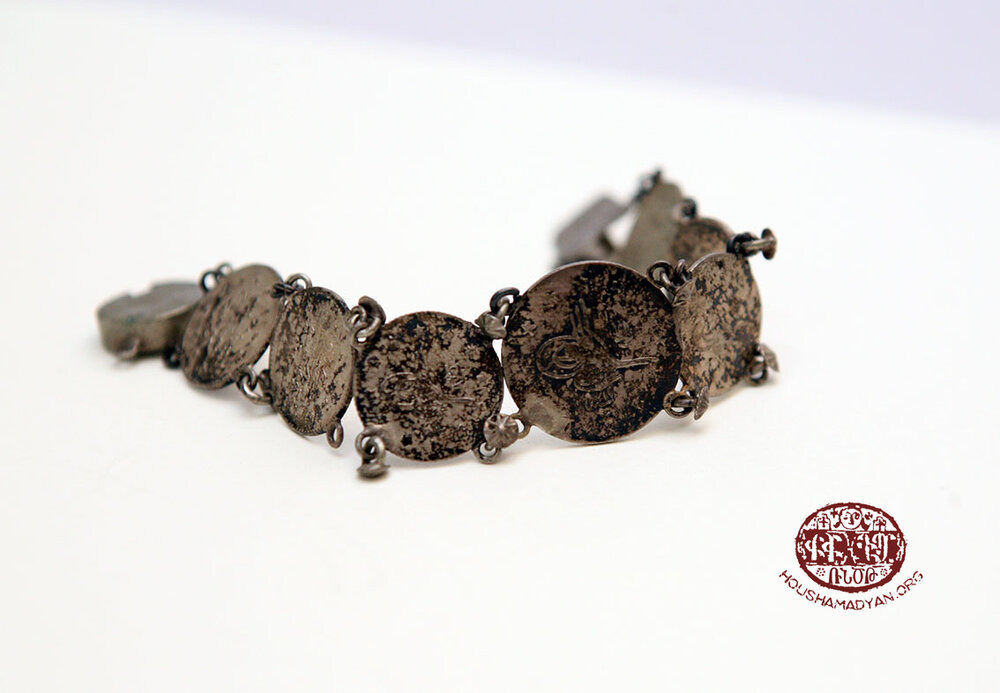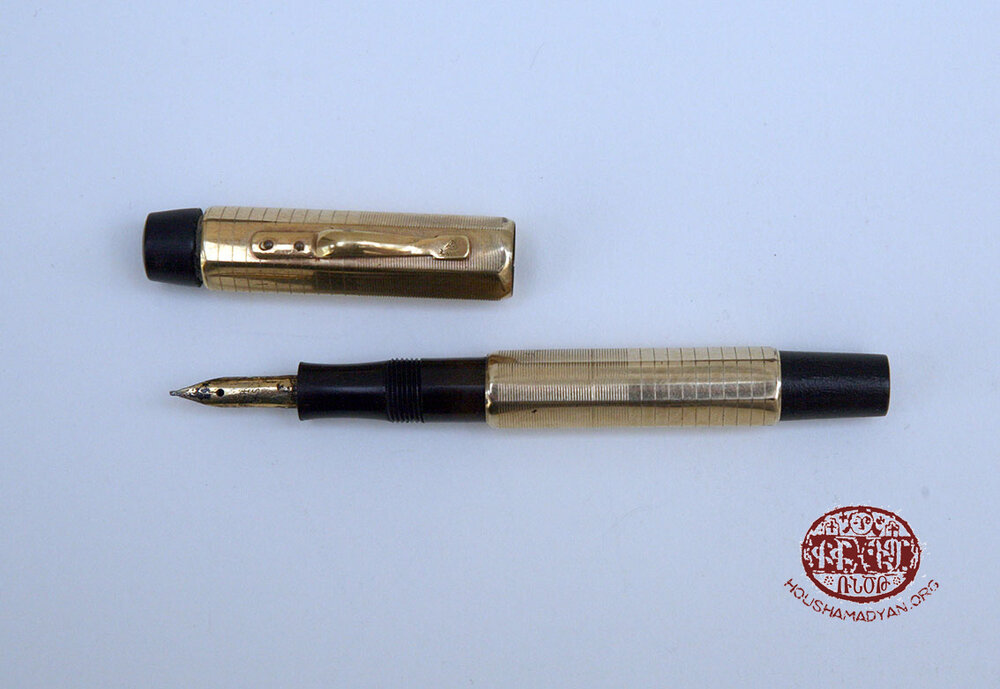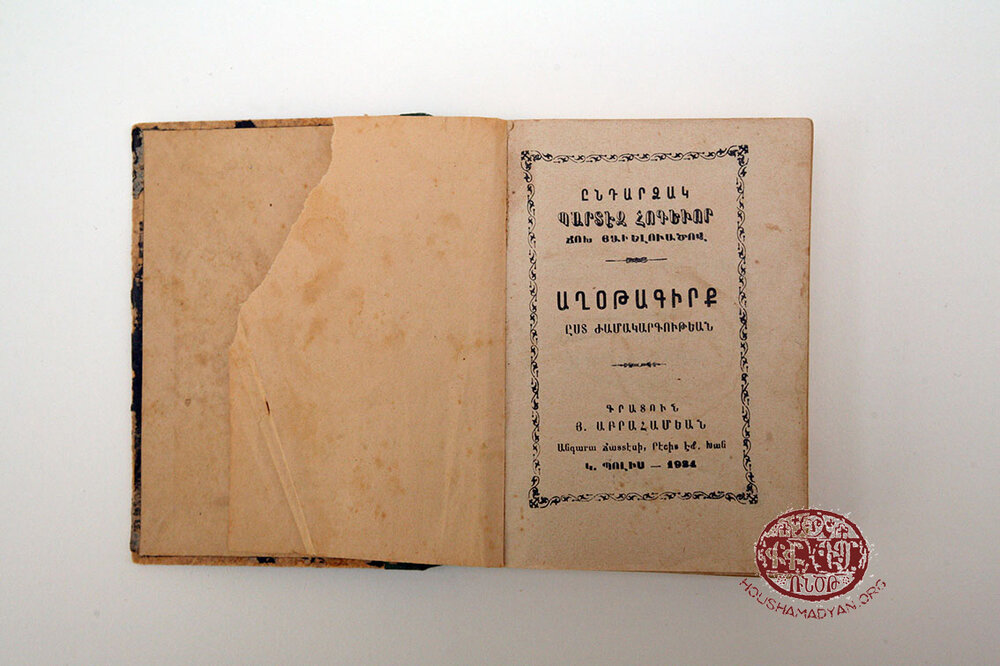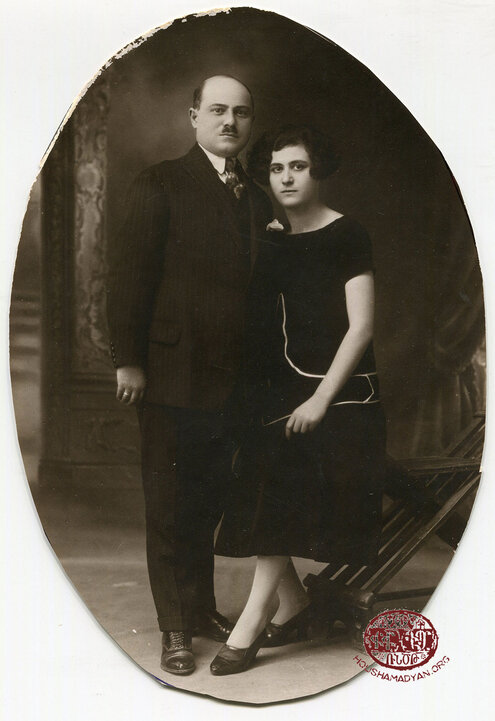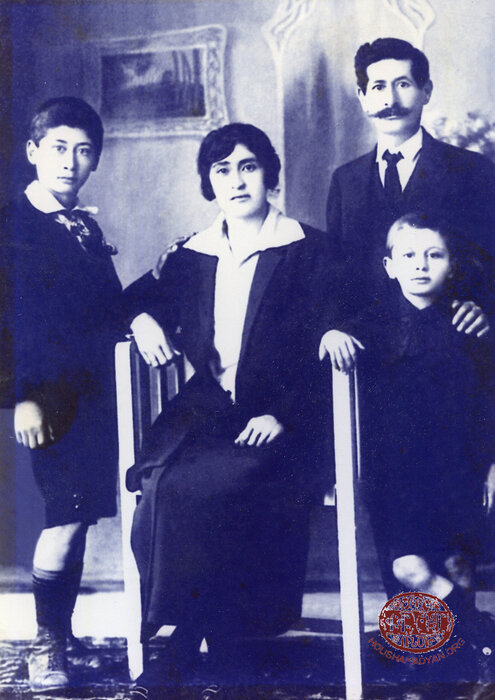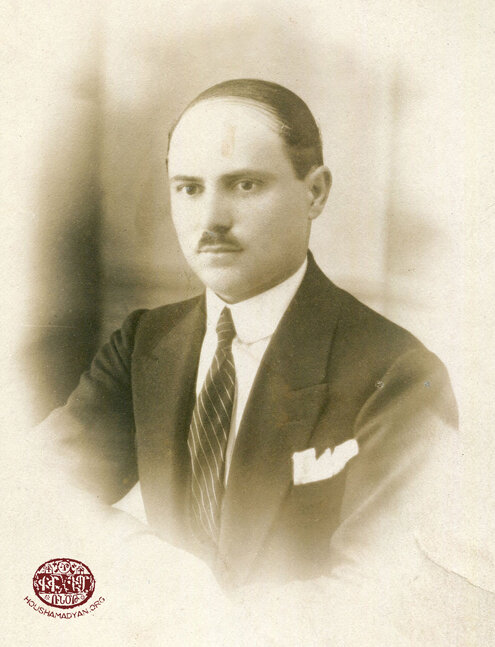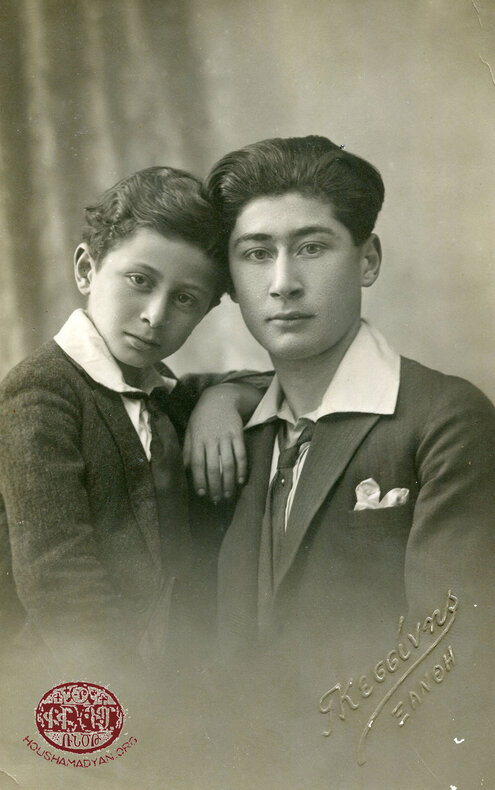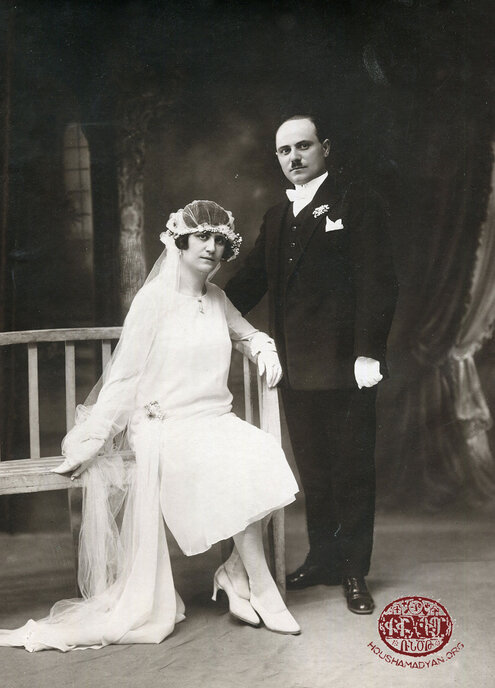Hripsime (Simi) Terzian-Nshanian – Athens
Author: Ani Apigian, 23/03/2023 (Last modified: 23/03/2023) - Translator: Simon Beugekian
The memory objects and materials presented on this page were collected and catalogued during Houshamadyan’s workshops in Athens on April 1st and 2nd, 2022.
This page was prepared collaboratively with the “Armenika” periodical of Athens and the Athens chapter of the Hamazkayin Cultural Association. Houshamadyan’s workshops were made possible thanks to the support of EVZ Foundation, Germany.
Hripsime/Simi Nshanian (nee Terzian) was born in Xanthi, in the northern Greek region of Thrace. At Houshamadyan’s workshop in Athens (April 2022), Hripsime shared with us the history of her family’s maternal branch, which began in the city of Edirne/Adrianople.
Hripsime’s great-grandmother was Mannig Kalousdian, while her great-grandfather’s name is unknown. We only know that he was a pharmacist. He and Mannig had two daughters, Zarouhi (Hripsime’s grandmother) and Nvart. Zarouhi was born in 1900, in Edirne, and attended the local Sisters’ School. She later married Garabed Yazdjian in Edirne. Garabed was a miller and owned a mill in Karaghadj (a suburb of Edirne). Hripsime does not know the details of the fate that befell them during the years of the Genocide. It is possible that thanks to Garabed’s profession, he and his family were spared from the deportations and allowed to remain in Edirne. We know that during those years, millers were considered essential workers by the Ottoman government, which meant that Armenian millers and bakers were exempt from deportation orders and could continue working and securing the population’s basic needs.
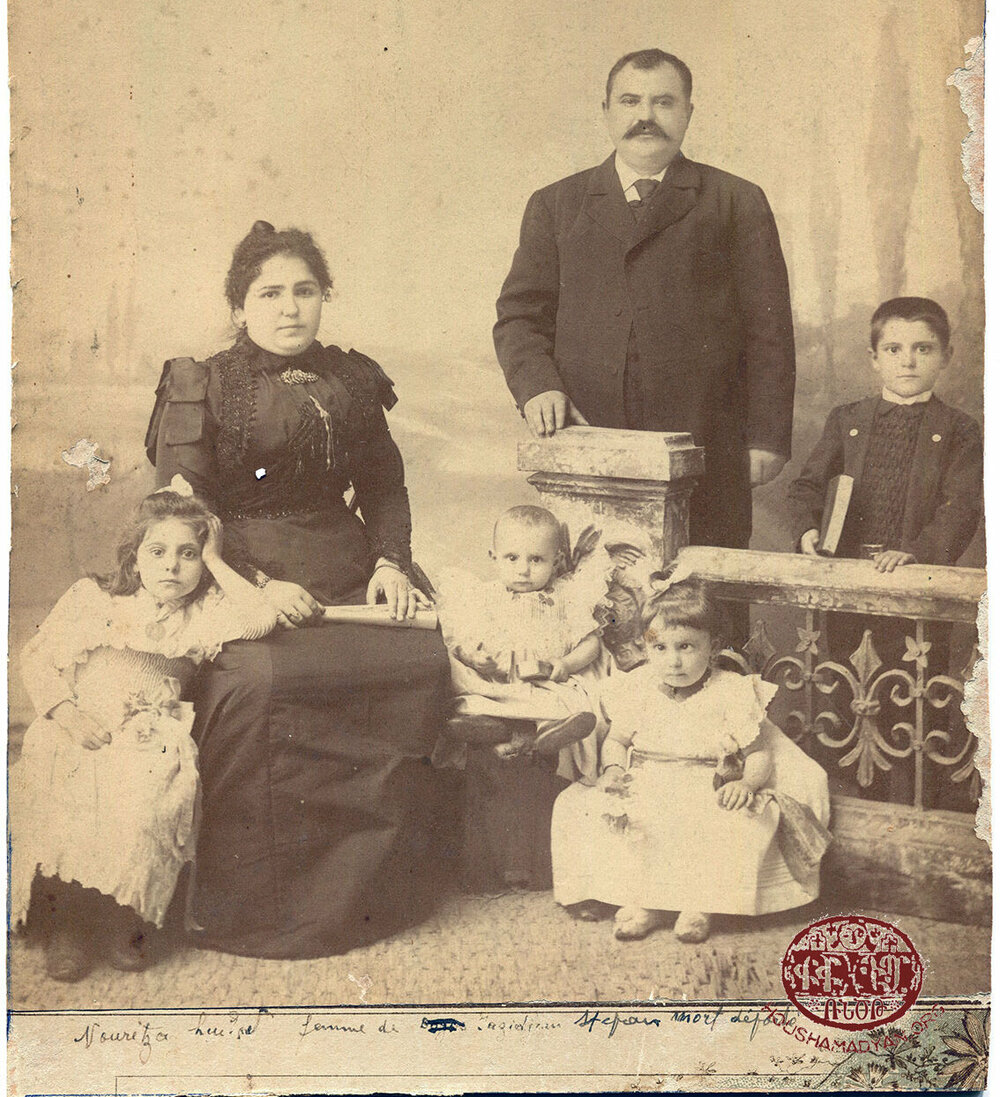
However, we know that in 1915, Garabed’s parents and other relatives were deported from Edirne and driven towards Der Zor. There, Garabed’s father and sister, Sdepan and Yeghisapet, were killed. Among the survivors were Garabed’s mother, Nouritsa; his sister, Takouhi; and a brother, whose name is unknown.
The survivors returned to Edirne. After the Armistice, the city was occupied by Greek forces. However, beginning in 1921, the Greeks suffered a series of defeats at the hands of the Turks, and began to retreat. Prior to the city’s fall to the advancing Turkish armies, Garabed, Zarouhi, and all their relatives decided to leave the city. First, they made their way to Didymoteicho, a Greek city located a few dozen kilometers south of Edirne, which currently lies very close to the Greek-Turkish border. Mannig Kalousdian’s brother, Khachig, lived in that city, and gave the family shelter. Only Mannig remained behind in Edirne. She would join her family in Didymoteicho many years later. Later, Zarouhi and Garabed settled down in the northern Greek city of Xanthi, where Garabed opened a flour market. Zarouhi’s sister, Nvart, moved to the nearby city of Komotini, where she married Garabed Chechian. Garabed’s sister, Takouhi, later emigrated to France and settled down in Paris.
In 1927, Zarouhi and Garabed had their first and only child, Elizabeth. She attended the French Sisters’ Boarding School in the Bulgarian city of Plovdiv. But she soon returned to Xanthi, where she attended a local Greek school.
In 1950, Elizabeth married Max Terzian, a jeweler from Xanthi. Max was the son of Sebouh and Hripsime. He had a brother, Vramshabouh (Vram).
In 1941, during the Second World War, Bulgarian forces occupied eastern Macedonia and Thrace, including Xanthi and its environs. Max and Vram were forced to abandon their careers and find new jobs under very difficult circumstances. They had to travel back and forth to Bulgarian cities for work on a daily basis.
Elizabeth and Max had two children, Garo and Hripsime (Simi).
Hripsime attended a Greek school in Xanthi. At the time, approximately 150 Armenians lived in the city. Construction of the Holy Virgin Armenian Church in Xanthi began in 1927.
Later, in 1968, Hripsime (Simi) left Xanthi and moved to Athens.
